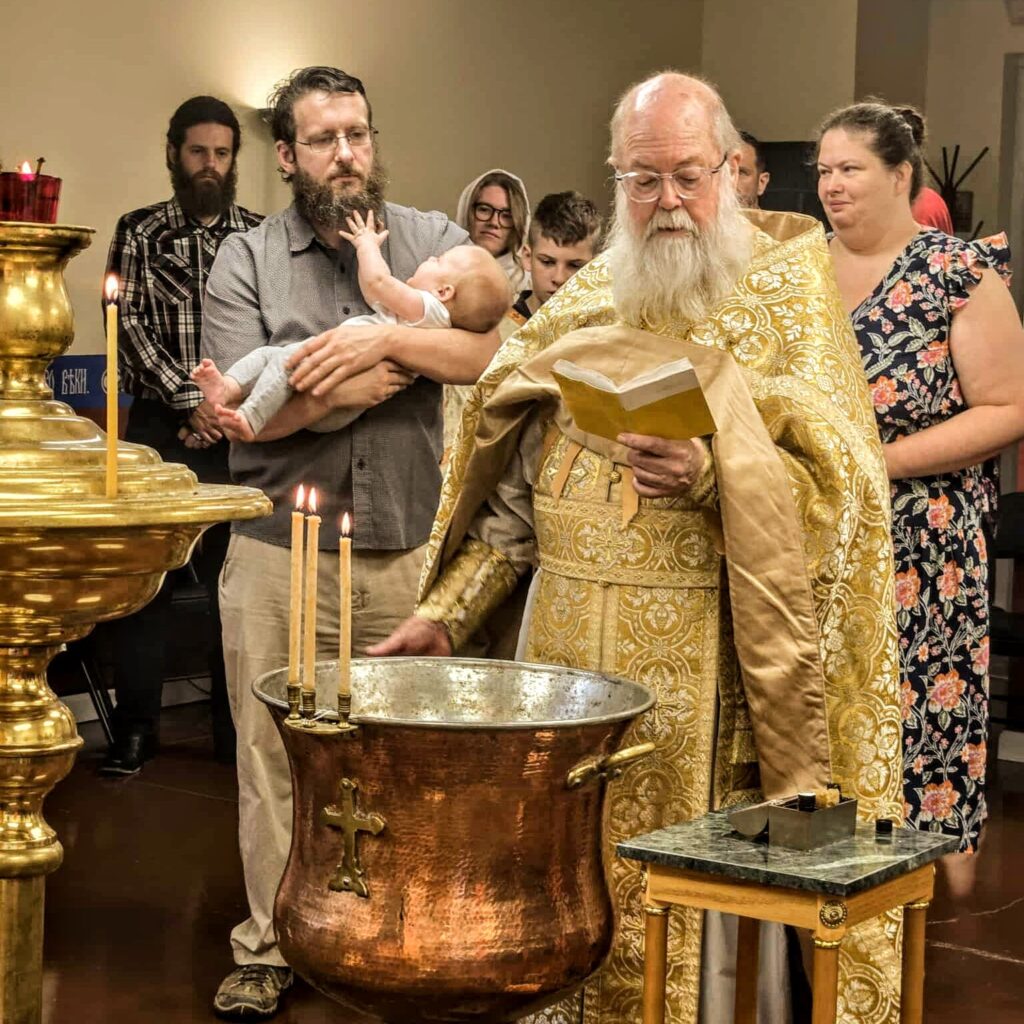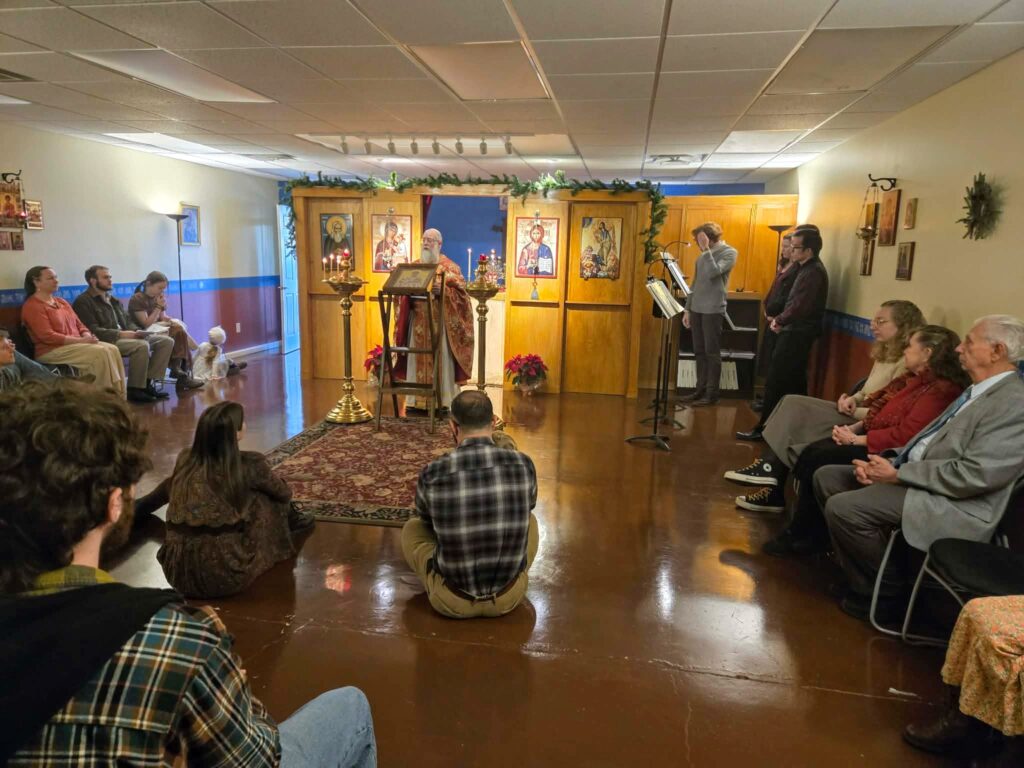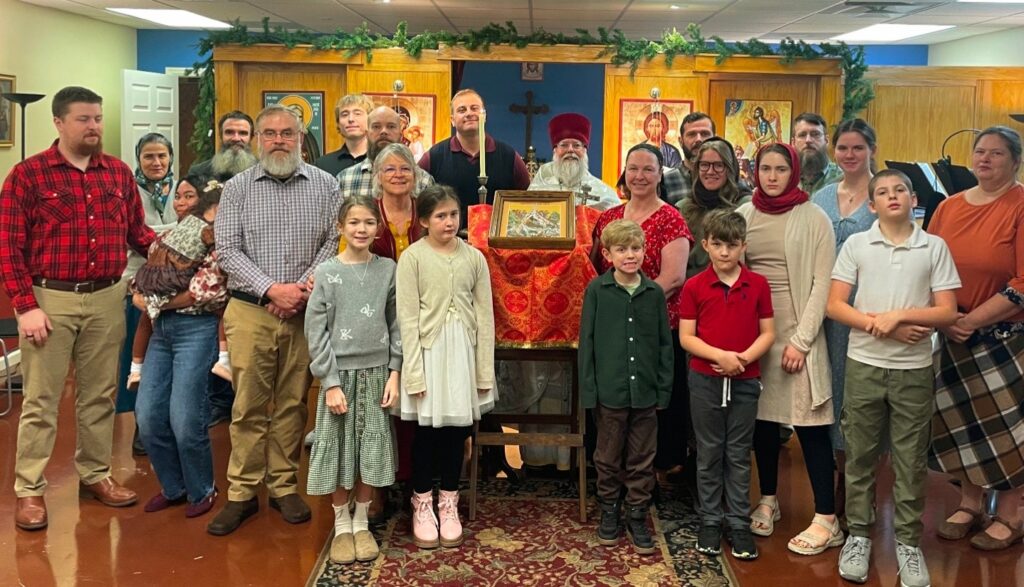
We welcome all visitors to our Orthodox chapel, located in Berea, KY! St. Nina Orthodox Mission — founded in 2021 — is itself a daughter of a now-large parish, St. Athanasius Orthodox Church in Nicholasville, that began as a small mission back in 2002. Both our mother parish and our daughter mission are blessed to have many visitors. We invite you to “come and see.”
Our full calendar for all events in our mission over the next several months is here. All evening services now begin at 630pm:
- Important NOTE: due to predictions of a foot of snow, all services on the weekend of January 24-25 have been cancelled. We invite you to livestream the services of our mother parish — St. Athanasius — via their YouTube channel.
- A second important NOTE: we are adding Great Vespers & Confessions with Fr. Justin at 630pm January 31 and a Teaching Liturgy with Fr. Justin at 9am on Sunday, February 1. We will update this frontpage soon for February — but in the meantime this important change can be noted.
Here are some recent photos of community life at St. Nina chapel in Berea:


















